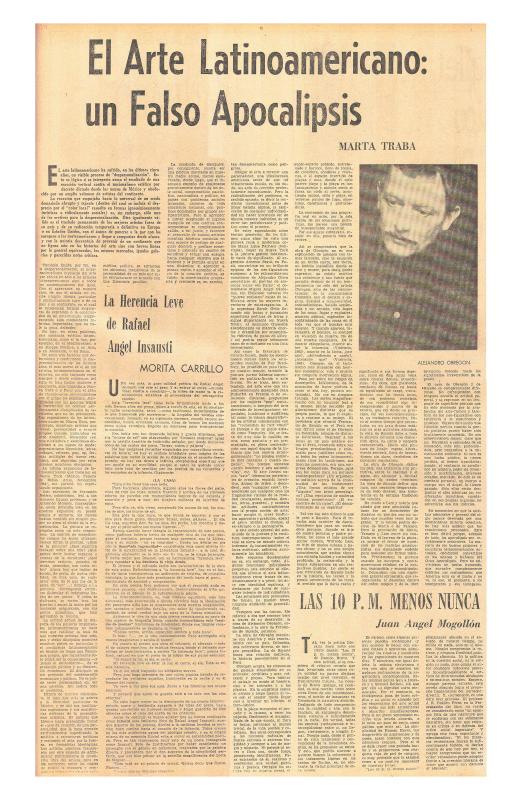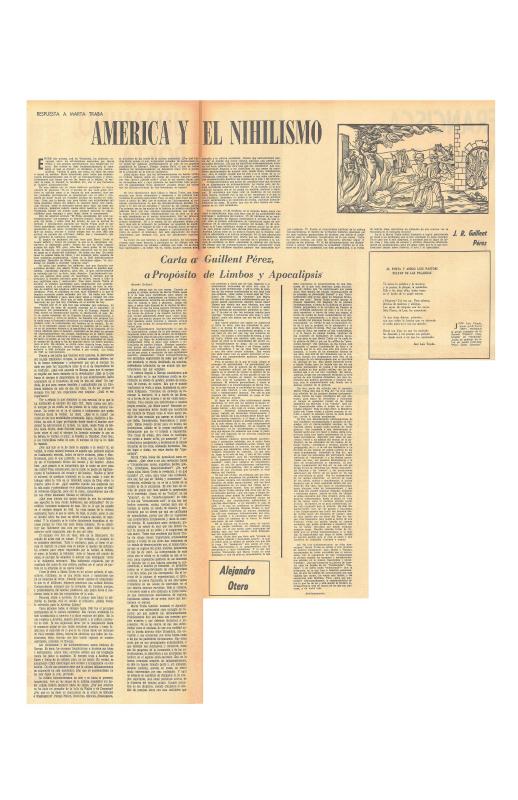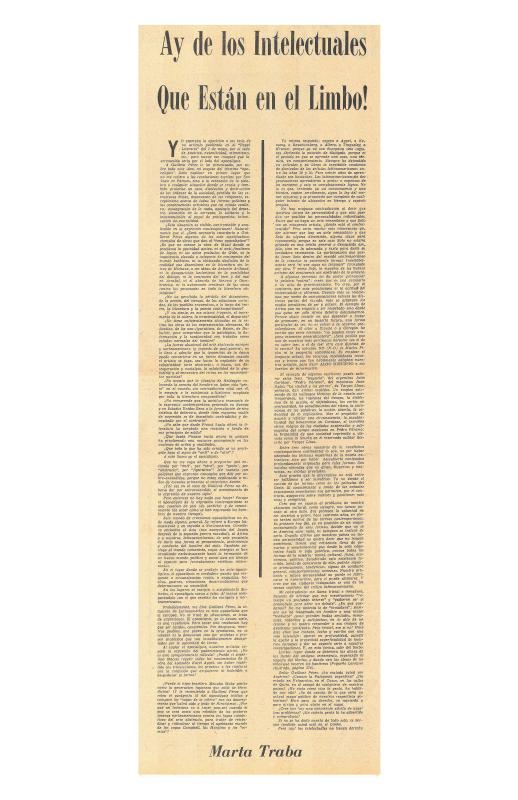This article by J. R. Guillent Pérez—who studied philosophy in Paris at the beginning of the 1950s and was a member of Los Disidentes group—is the first of a series of four. It pertains to the controversy that arose in Caracas from the article by Marta Traba, the Argentinean critic based in Colombia, entitled “El arte latinoamericano: un falso apocalipsis” [see doc. no. 799377], published on May 2, 1965, in the literary supplement of El Nacional newspaper. It concerns the controversy that played out through September of that year in this weekly newspaper and in the Revista Nacional de Cultura. Traba had been invited to give three talks at the Museo de Bellas Artes in Caracas; there was also radio and television coverage, as well as a final debate in the Ateneo de Caracas. The painters Alirio Rodríguez and Alejandro Otero, critics Roberto Guevara and Perán Erminy, and philosopher Ludovico Silva also participated, in addition to Guillent Pérez and Traba.
Having been part of the Los Disidentes group in 1950, the group of Venezuelan artists then based in Paris, Guillent Pérez adhered to the philosophical school of existentialism. It was he who maintained the most extended written dialogue with Traba regarding this controversial debate. Arguing against her ideas—included in a line of thought with a socio-anthropological bent—Guillent Pérez juxtaposes his own rigorous philosophical analysis, supported by defined categories and concepts. In his second article (“América y el nihilismo” [doc. no. 799193]), Guillent Pérez specifies the objective of his first article: “to call the reader’s attention, and above all the artist’s, to Marta Traba’s attitude of rejection and disdain toward what she calls apocalypse.” It is important to note the Venezuelan’s respectful tone as he discusses Traba’s ideas; even though he considers them “inconsistent,” he recognizes that they should be studied carefully because they reflect an “alert and anguished voice” regarding the true task of Latin Americans. In his opinion, it is this voice that should be preserved from Traba’s ideas.
The articles that appeared in the literary supplement of El Nacional were compiled in the Colección Delta Solar as Modernidad y postmodernidad. Espacios y tiempos dentro del arte latinoamericano (Caracas: Museo Alejandro Otero, 2000). Another selection of the documents that appeared in the Revista Nacional de Cultura was published in Roldán Esteva-Grillet, compiler, Fuentes documentales y críticas de las artes plástica venezolanas. Siglos XIX y XX (Caracas: CDCH/UCV, Vol. II, 2001).
For more on this debate, see another of Traba’s responses entitled “Ay de los intelectuales que están en el limbo!” [doc. no. 799428].



